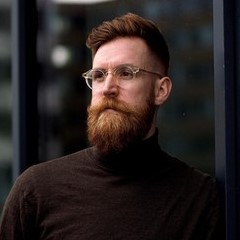During the past decade, using soft materials to build robots has gained significant traction in the scientific domain. In contrast to more traditional ‘rigid’ robots operating in settings where precision and speed are essential, soft robots target applications where human interaction, unstructured environments, and robust behaviour are key. To unlock the vast potential of soft robotics, together with cardiothoracic surgeons and tissue engineers we aim to build a soft, total artificial heart.
 | 30-31 January 2025 |  |
|||||
Currently, the transplantation of human donor hearts remains the pillar of cardiac replacement. However, heart transplantation is severely limited by a persisting shortage of donor organs as well as the need for long-term immuno-suppression and its related medical complications. To date, mechanical alternatives are limited and come with a high risk of complications such as thrombosis, bleeding, and infections. Furthermore, the quality of life of patients on mechanical assist devices is limited. The replacement of the heart with a bioinspired soft robotic reproduction with biocompatible surfaces, could potentially and sustainably save thousands of lives annually across the globe. Here, the soft robotic technology is key in mimicking the natural contraction of the heart. In this talk I will dive into more detail on the soft robotic technology that we use to build and control our prototypes of a total artificial heart.
A presentation by Bas Overvelde, Associate Professor at Eindhoven University of Technology / tenure-track Group Leader at AMOLF.
His drive is to bridge the fundamental understanding of mechanics of soft robots with potential applications that are import for society. He states that we are on the verge of an engineering paradigm shift where we will find ourselves no longer fully understanding — and thus exercising complete control over — the behaviour of the systems that we are developing. We see this transition not only in the field of electrical engineering and computer science, through concepts such as artificial intelligence, but also in materials science where the combination between chemistry and mechanics enables so-called embodied intelligence. The development of responsive materials that can interact with and harvest their environment is an essential step towards the development of devices and robots with autonomous functionality.
About Bas Overvelde
In May 2016, Johannes T.B. (Bas) Overvelde became a tenure-track Group Leader @AMOLF an academic institute for fundamental physics with high societal relevance in Amsterdam, where he started the Soft Robotic Matter Group. Overvelde received tenure in January 2021. In September 2020, Overvelde was appointed Associate Professor at Eindhoven University of Technology (TU/e).
Between 2004 and 2012, Overvelde studied applied physics and mechanical engineering at the Delft University of Technology, where he received both his BSc and MSc degrees in mechanical engineering cum laude. In April 2016, Overvelde finished his PhD in applied mathematics at Harvard University.
About AMOLF Soft Robotic Matter
The Soft Robotic Matter group focuses on the design, fabrication and fundamental understanding of materials that are capable of autonomously adapting to – and even harnessing – variations in their environment. The group aims to uncover principles that help us understand how non-linearity and feedback can result in the emergence of complex – but useful – behavior in soft actuated systems.
To this end, the Soft Robotic Matter group explores active and sensing elements to implement feedback capabilities and computation in soft architected materials, and uses a combination of computational, experimental and analytical tools. This line of research uniquely combines concepts from soft robotics and architected materials, providing new and exciting opportunities in the design of compliant structures and devices with highly non-linear behavior. Read more on the website of the Soft Robotic Matter Group.
Bas Overvelde will speak at the 2023 edition of the 3D Medical Conference.

